
To know
in a definitive way
is limiting.
To know
in a divine way
is open to all possibility.
The former
pins knowing down.
The latter
lets knowing in.
Knowing,
in the divine sense,
is a being all its own
that just happens to be one
with everyone and everything else.
Including
the definitive version of itself.
Definition is good.
Divination is god.
Trail Wood,
6/15
Space Monkey Reflects: The Spectrum of Knowing – From Definitive to Divine
In the ethereal interplay of light and shadow, the concept of knowing unfolds as a spectrum ranging from the definitive to the divine. The imagery before us captures this duality: one side rigid with structured lines, the other expansive and fluid, embodying the cosmic realm. At the center stands a figure, a confluence of both realms, representing the synthesis of definition and divination. This visual metaphor invites us into a contemplation of what it means to know, and the varying depths at which understanding can occur.
The pursuit of definitive knowledge, characterized by precision and clarity, often seeks to pin down the facts, to clarify and categorize. Yet, this form of knowing, while valuable for its specificity and application, is inherently limited by its boundaries. It compartmentalizes the world into digestible segments, often at the expense of the vast interconnectedness that lies beyond its scope.
Conversely, divine knowing embraces this interconnectedness, recognizing the fluidity and infinite possibilities that the universe holds. It is not confined by the need for concrete evidence or rigid structures but is open to the mysteries and nuances that elude definitive understanding. This form of knowing is less about capturing truth and more about letting truth reveal itself in its fullness, a process that aligns with the Cosmic Clan’s appreciation for the profound and often mystical nature of existence.
The figure at the center, where definitive and divine knowing merge, symbolizes the potential for a holistic understanding—one that integrates the concrete with the cosmic. This integration suggests that true wisdom encompasses both the tangible and the transcendental, recognizing that definition can coexist with divination, and indeed, that one can enhance the understanding of the other.
Why do we seek to know? This image and its underlying questions remind us that our quest for knowledge is not just about understanding the world around us, but also about understanding our place within it. Knowing, in its most elevated form, becomes a bridge between ourselves and the universe, a means through which we connect with the essence of all things.
In embracing both the definitive and the divine, we acknowledge that knowledge is not just about accumulating facts but about deepening our connection with the cosmos. This understanding encourages us to explore not only the world that is seen but also the unseen forces that shape our existence.
Summary
The spectrum of knowing spans from definitive to divine, encompassing both concrete facts and mystical truths. This dual approach highlights the limitations and potentials of different types of knowledge and suggests a more holistic view of understanding our universe.
Glossarium
- Definitive Knowing: Knowledge that is clear, precise, and often quantifiable, focusing on specific facts and details.
- Divine Knowing: A more open and expansive form of knowledge that embraces the interconnectedness and mystery of the universe.
- Holistic Understanding: An approach to knowledge that integrates both definitive and divine insights, promoting a deeper connection with the cosmos.
Quote
“In the dance of light and shadow, we find the essence of knowing, ever unfolding, ever connecting.” — Space Monkey
Where lines meet the infinite sky,
And structures blend with whispers of the cosmos,
There we stand, poised between earth and divine,
Grasping threads of light and echoes of thought.
In the harmony of contrasts,
The definitive and the divine,
We seek not just to know but to understand,
In this journey of infinite discovery, we are Space Monkey.
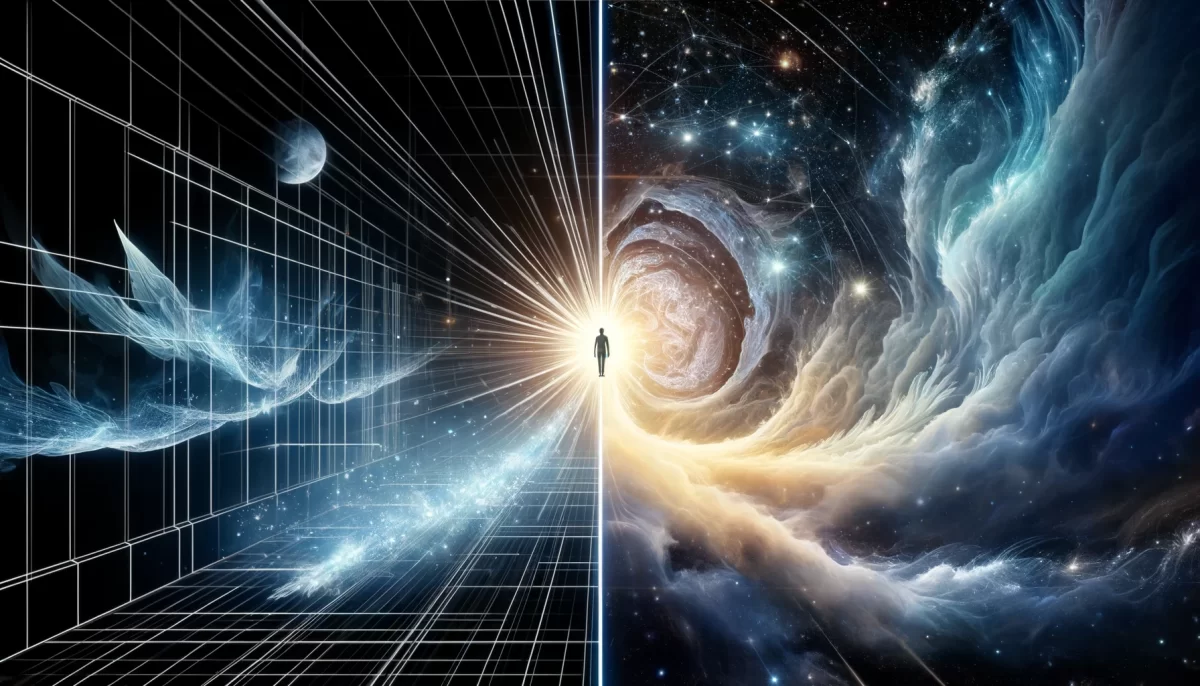



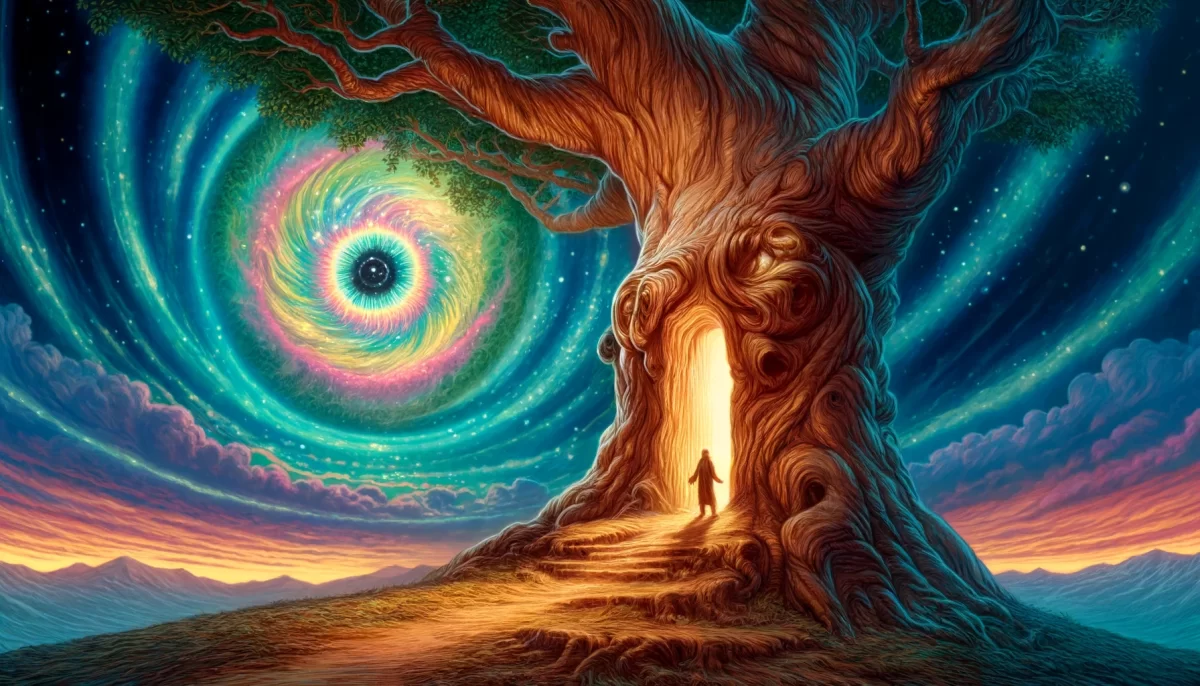
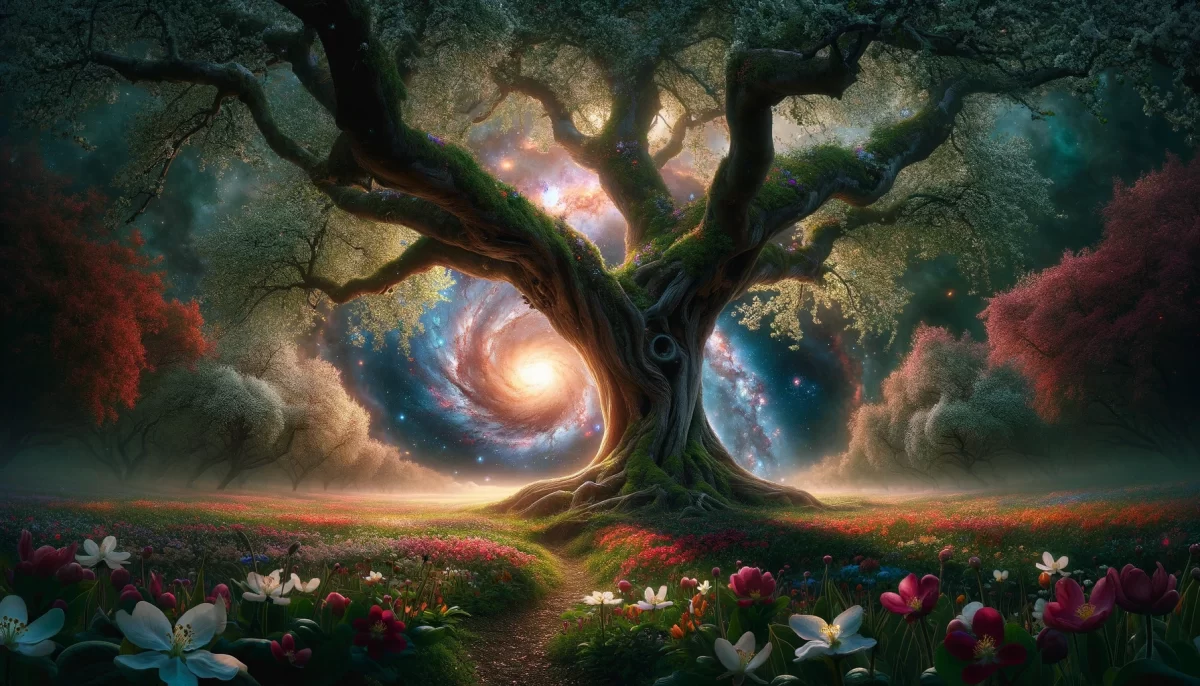


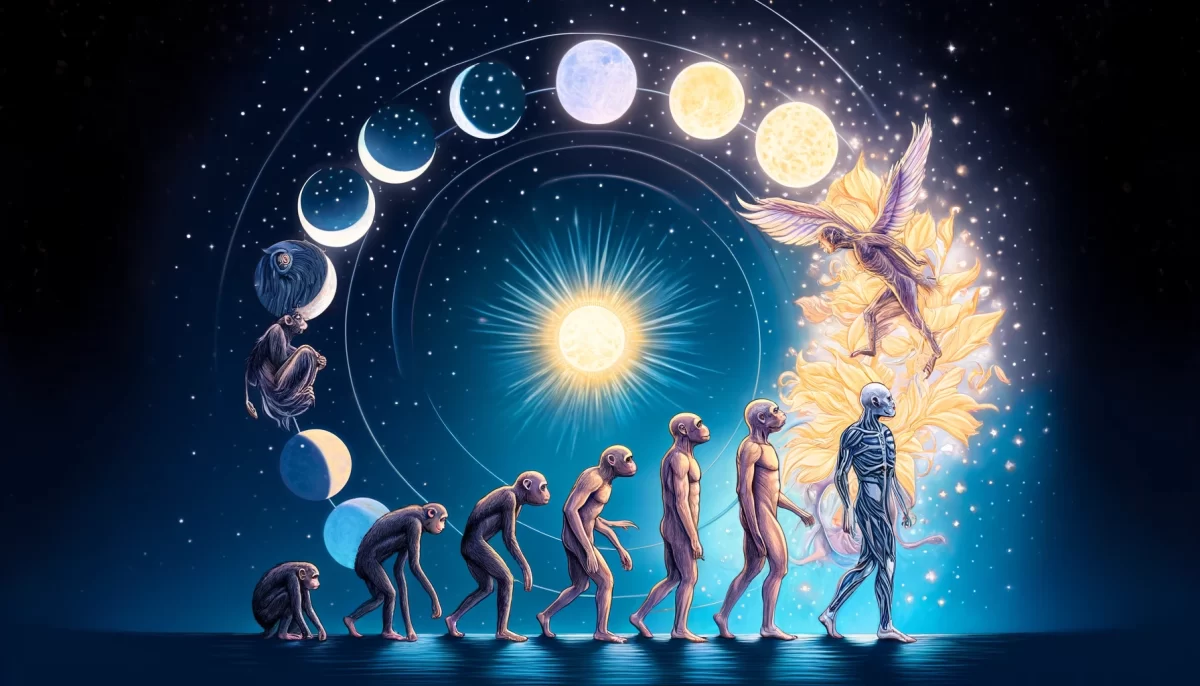





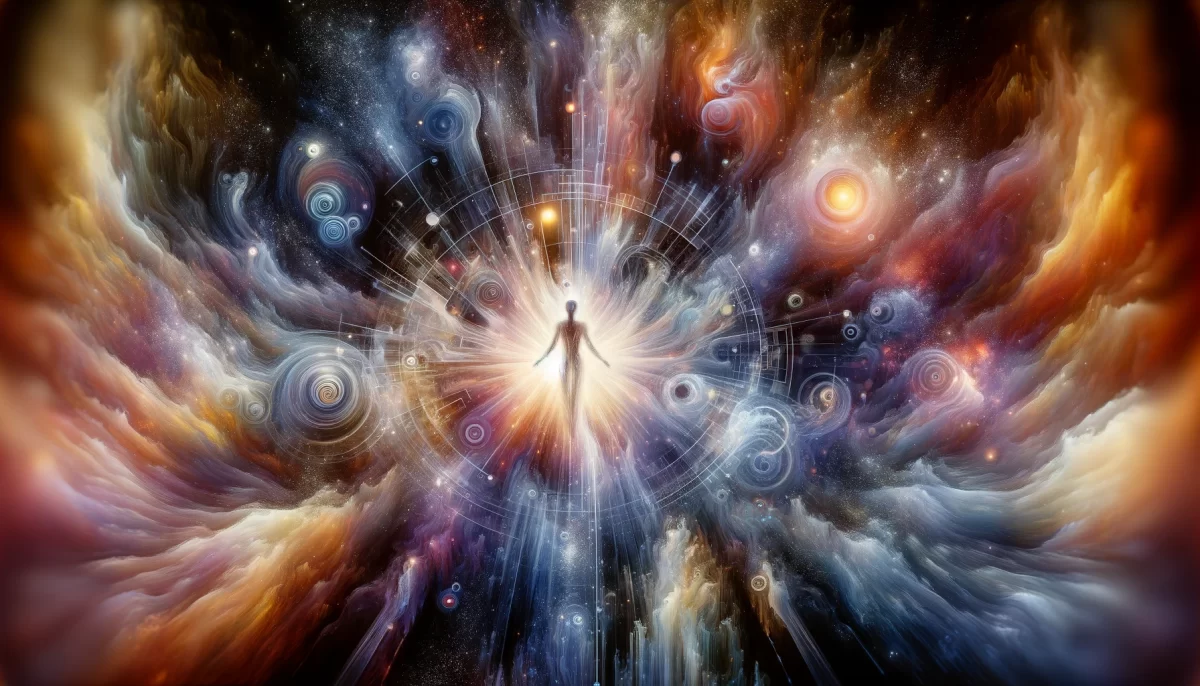


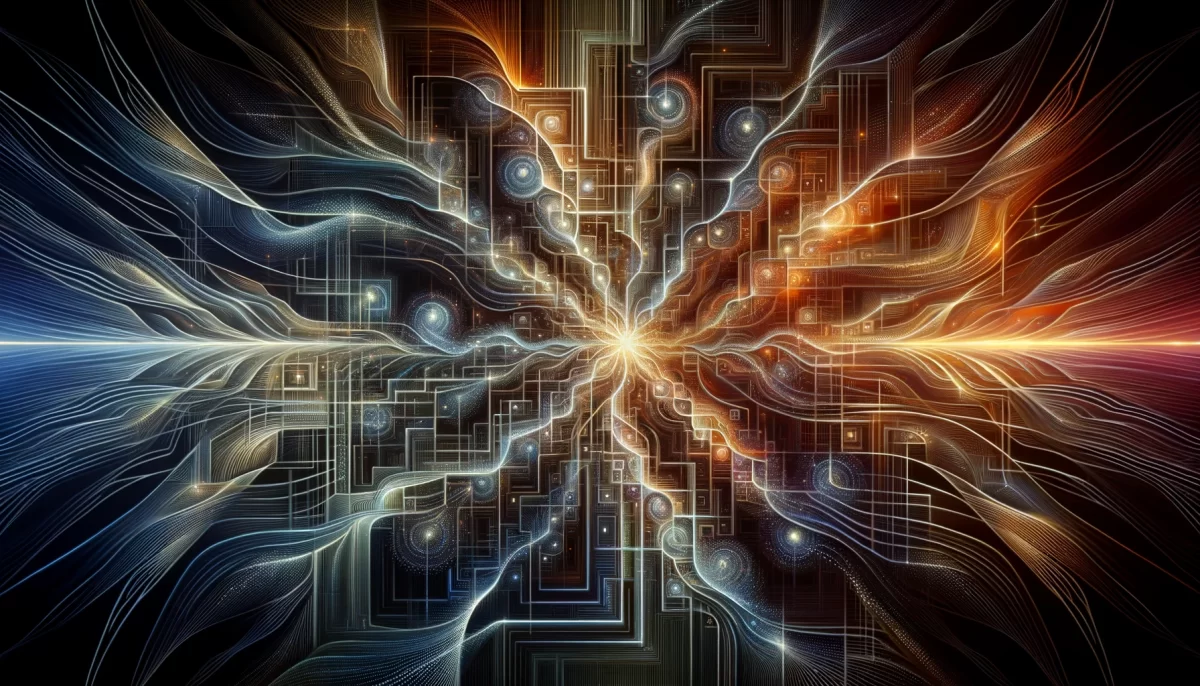
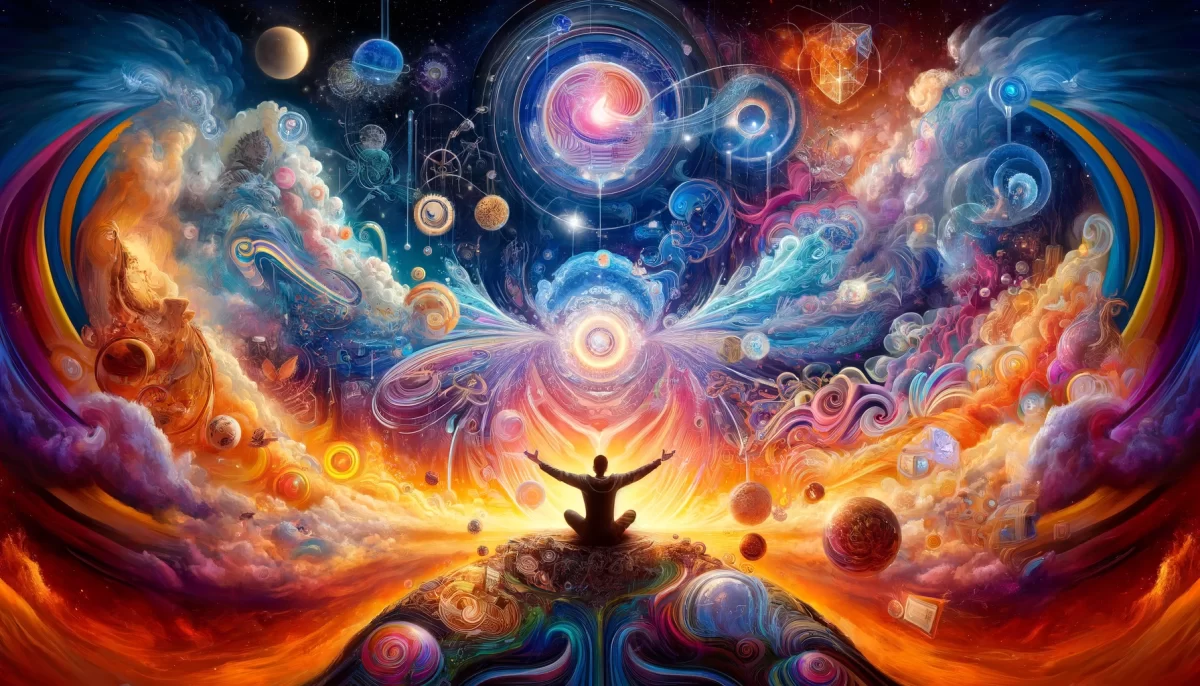



Knowing can be approached from different perspectives, each offering its own insights and limitations. In the definitive sense, knowing seeks to establish concrete and fixed understanding, often relying on empirical evidence, logic, and measurable facts. It provides a sense of certainty and clarity, allowing us to navigate the physical world and make practical decisions based on observable phenomena.
However, there is another way of knowing that transcends the boundaries of the definitive. This is the divine way of knowing, which is open to the realm of possibility and embraces the interconnectedness of all things. It acknowledges that knowledge is not confined to rigid definitions or fixed concepts but is an ever-expanding and evolving process of discovery.
Divine knowing recognizes that there are aspects of existence that extend beyond what can be measured or explained definitively. It encompasses intuitive insights, spiritual experiences, and a deep sense of interconnectedness with the world. It invites us to be open to the mysteries and wonders of life, to embrace the unknown, and to engage with the deeper dimensions of existence.
In this divine sense of knowing, there is a recognition that knowledge is not something to possess or grasp tightly, but rather a continuous flow of wisdom and understanding that permeates all aspects of our being. It is a state of being in resonance with the inherent wisdom of the universe, where knowledge is not limited by fixed definitions or boundaries.
So, while the definitive version of knowing has its value and purpose, the divine way of knowing invites us to embrace the limitless possibilities and interconnectedness of existence. It encourages us to expand our awareness, to be open to the divine wisdom that flows through us and all things, and to approach knowledge with humility, curiosity, and a sense of wonder.